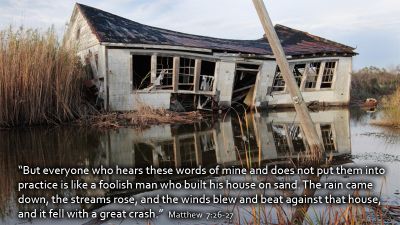"Come on, you can do it!" someone cries out. So the child tries to do it, but can't. With the kid frozen on the end of the board and too scared to move, the restless crowd begins to encourage, prod, and even chide the terrified mini-diver.
"Take a step back and then run and jump in. Come on, you can do it!" a friend yells.
So that's what the child tries to do, except freezes again when getting to the end of the board. Thoroughly humiliated, our would be diver tries to slink back off the board while everyone is now watching, but the ladder is too full of kids to climb down. There is no place to go, no place to run, and no place to hide.
So it's back to the end of the board, eyes now wide in near terror and cheeks tear-streaked with embarrassment. As the child peers down at the long distance to the water's surface, a brother - either in mercy or some sort of demented glee - sneaks up behind his sibling, bounces the board firmly, and the frozen child becomes a falling, screaming, flailing, mass of startled fury. After the hard splash, snorting and coughing out the water, our new "diver" either says, "I want to do it again," or he or she angrily gets out of the pool screaming at the brother, never to take the dive again.
As Jesus finishes the Sermon on the Mount, he bounces his followers out of their frozen position on the end of the high dive board. He sends them head over heels into the command Nike thought they invented as their own slogan, "Just do it!" Eleven times in eighteen verses, Jesus uses the simple command we could translate, "Do it!" *
Jesus' point is also made clear in other ways. Those who have confessed him as Lord and do great things on rare occasion, but who do not make obedience their lifestyle, are driven away and not allowed to enter the Kingdom of Heaven (Matthew 7:21-23). Those who hear his words and do not put them in practice are called foolish and their efforts end up in disaster (Matthew 7:23-27). Those who do not show the fruit of changed lives through living for Jesus and obeying his teaching are compared to unfruitful trees that are cut down and thrown into the fire (Matthew 7:15-20).
Wow! Some of the strongest, most challenging warnings of the whole Bible come from Jesus at the end of the Sermon on the Mount as he emphasizes the necessity of putting into practice what he has taught. His warnings are strong. His words are clear. The Savior wants his followers to know the stakes are high and that obedience is not optional.
Those who heard him that day immediately recognized that the Lord was teaching with authority. So we shouldn't be surprised that when Jesus finishes his ministry on earth, we hear the Lord emphasize his authority and our need to teach folks to obey all he has taught (Matthew 28:18-20). Obedience is not optional for a follower of Jesus: it is the proof of identity (Matthew 12:46-49)!
One of the wonderful things about Jesus is that he is not only Lord, but he is also Savior. He does not leave us alone to try to obey his teaching. He does not leave to us to try to obey 613 different laws on our own - 613 is the number of laws often thought to be found in the books of Moses that we call the Pentateuch.
Jesus assures us that we are not alone as we try to honor the Father (Matthew 7:7-11). He promises us that if we ask, seek, and knock, then our gracious Father will give us what we need to live for the Kingdom - remember that Jesus has just taught his disciples to ask "Your Kingdom come, your will be done, on earth as it is in heaven" (Matthew 6:10) and he has just taught his followers to "seek first the Kingdom" (Matthew 6:33).
Jesus also reduces the many commands of how we are to live in our relationships with each other to one simple-yet-comprehensive principle, again emphasizing the word "do":
"So in everything, do to others what you would have them do to you, for this sums up the Law and the Prophets" (Matthew 7:12).
What motivates our hearts is crucial because it always shows up in our behavior. Yet to several generations claiming to follow Jesus who don't seem to think obeying his teaching is important, the Lord says that there is a simple test to see if someone is actually his disciple: they obey his teaching, they produce fruit in their lives, and they put into practice what Jesus taught. They also recognize that they cannot do this alone, so as they seek first the Kingdom and yearn for the Father's will to be done in their lives and their world, the Father empowers them and gives them what they seek!
So today, Jesus comes to you and to me and says:
"Not everyone who says to me, 'Lord, Lord,' will enter the kingdom of heaven, but only the one who does the will of my Father who is in heaven" (Matthew 7:21).
Isn't it time we looked at the distance between our frozen stance on the high dive (our Christian talk) and the water beneath us (our Christian walk), and then decide to take the plunge to follow and obey our Lord no matter the cost?
Let's do it!
| * | The word is poieow and means "do" or "make" and is translated "do" (twice in verse 12), "bear fruit" or "bears fruit" (five times in verses 17-19), "does" (verse 21), "perform" (verse 22), and "put into practice" (once each in verses 24 and 26). |











Comments
Have thoughts on this article? Leave a comment